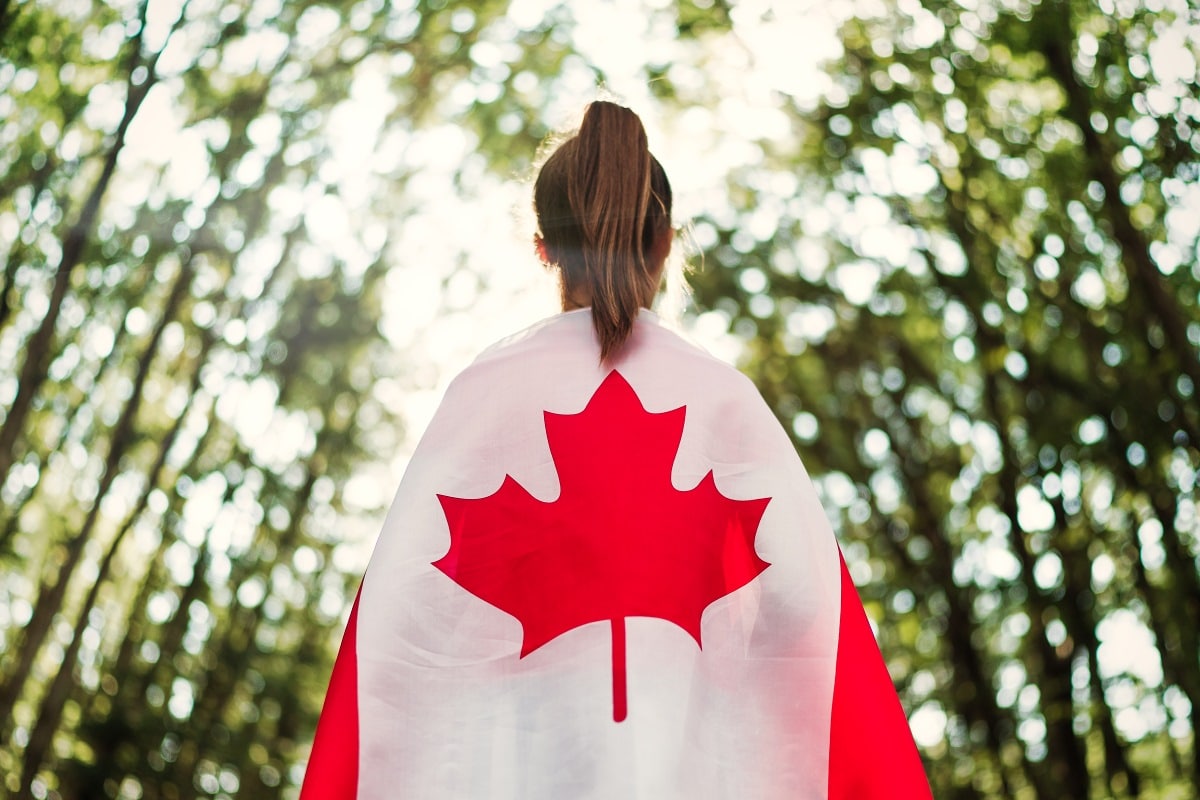Canada’s unexpected reversal in denying Russian anti-war activist Maria Kartasheva citizenship, despite her aligning with the country’s stance on the Ukraine-Russia conflict, shows the kafkaesque nightmare faced by Russian activists seeking sanctuary in the West. Here’s the full story.
Convictions for Activism
In a surreal twist of fate, Canada recently reversed its decision to deny Russian anti-war activist Maria Kartasheva citizenship, shedding light on the challenges surrounding convictions under Moscow’s oppressive laws, which have criminalized all dissent, protests, and activism against Russia’s ongoing invasion of Ukraine.
Maria Kartasheva, the founder of the Russian Canadian Democratic Alliance, fled Russia in 2019 due to concerns over the increasing crackdown on dissent by Vladimir Putin’s regime.
Her legal troubles escalated in 2022 when her blog posts about the Ukrainian town of Bucha, the site of a massacre by Russian forces of civilians and POWs, caught the attention of Russian authorities. Despite aligning with Canada’s stance on the conflict, she was charged, convicted, and sentenced to eight years in jail in absentia.
Canada’s Stance
Canada, a steadfast supporter of Ukraine since Russia’s invasion in 2022, has pledged substantial aid and hosted Ukrainian President Volodymyr Zelenskiy. Justin Trudeau’s government consistently condemned Russia, imposing sanctions on numerous officials, including the judge involved in Kartasheva’s arrest.
Despite her alignment with Canadian foreign policy, Kartasheva’s in-absentia conviction in Russia jeopardized her application for Canadian citizenship.
Canadian immigration law stipulates that applicants charged with crimes abroad, equivalent to offenses under Canada’s criminal code, may face rejection.
Invitation to Citizenship Ceremony
In an unexpected turn of events, Kartasheva received a telephone call inviting her to a citizenship ceremony, seemingly resolving her case. Anxious about the sudden breakthrough, she attended the ceremony later that day. “I was taken aback when I received the call. It felt like a glimmer of hope in an otherwise disheartening situation,” Kartasheva expressed.
Moments before the virtual citizenship ceremony, Kartasheva, as a formality, disclosed her criminal charge. Despite expecting officials to be aware of her case, her answer led to exclusion from the ceremony, leaving her heartbroken.
This unexpected turn of events created confusion and frustration for Kartasheva. “It was devastating. I thought they had all the information, but suddenly I was left out. It felt like a cruel joke,” Kartasheva lamented.
Canada’s Response
In December, Canadian officials, citing subsection 372(1) of the criminal code, informed Kartasheva that her Russian conviction aligned with a criminal offense related to spreading false information. Legal experts, including University of Toronto law professor Audrey Macklin, suggested the case may have resulted from an overzealous citizenship officer.
The repercussions of Canada’s kafkaesque decision left Kartasheva concerned about the potential risk of deportation to Russia. Expressing her worries about the lack of transparency in the process, she questioned whether bureaucratic hurdles could lead to life-altering consequences. “I know the odds are low, but so many things have gone wrong.
How could I not worry that I might be deported? This feels like a surreal comedy, one in which everything goes wrong. But the problem is this is my life,” she stated.
Uncertain Future
The Conservative MP Tom Kmiec emphasized “There is no law in Canada that says you cannot criticize our military, can’t criticize politicians, can’t criticize our government, that’s part of living in a democracy.” In response, Canada’s immigration department emphasized its commitment to reviewing cases thoroughly and maintaining the integrity of immigration and citizenship programs.
The office of the immigration minister, Marc Miller, chose not to comment on specific cases, leaving Kartasheva in a deeply worrying state of uncertainty about her future in the country. The convoluted journey of Maria Kartasheva’s quest for Canadian citizenship highlights the intersection of international geopolitics, individual activism, and the harsh realities of immigration laws.
The twists and turns of her case underscores the serious challenges faced by those seeking refuge in a world where politically motivated convictions inadvertently collide with overly zealous bureaucratic processes.
The post Canada Reconsiders Decision on Russian Anti-War Activist’s Citizenship first appeared on Edge Media.
Featured Image Credit: Shutterstock / iVazoUSky.
Grant Gallacher is a seasoned writer with expertise in politics and impactful daily news. His work, deeply rooted in addressing issues that resonate with a wide audience, showcases an unwavering commitment to bringing forth the stories that matter. He is also known for satirical writing and stand up comedy.

